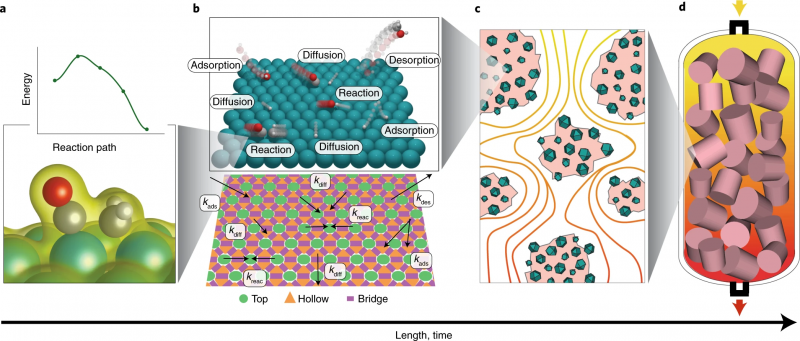Project summary
Catalysts for energy conversion vary in size and shape, from quantum dots (~10 nm) to single atom, where quantum confinement effect and quantum chemical characterization could arise. The current catalyst development is basically a trial-and-error process, where theoretical tools such as density-functional theory (DFT) and Quantum Monte Carlo (QMC) are often used to explain the experimental observations once a high-performing catalyst is found, although these tools may have trouble in dealing with strongly correlated materials, e.g., transition metal oxides.
To overcome the opportunistic approach, this project will use computational quantum models (mechanistic and reaction chemical; and/or machine learning techniques) to predict the possible ‘ideal’ catalysts for certain energy applications such as water splitting. The catalysts will then be validated by experimental synthesis and electrochemical evaluations. The outcome of this project is to set the foundation of catalyst discovery for a range of important energy conversion reactions to facilitate clean energy transition.
The PhD candidate will have the opportunity to interact with experts in quantum modelling from the academia and/or Data61@CSIRO. The project will basically include the following activities:
- Identify catalyst candidates (preferably transition metal-based systems) for specific energy conversion reactions.
- Use computational quantum modelling (e.g., DFT or QMC) to predict the desirable electronic structures of catalysts and intermediates for the respective reactions.
- Design and synthesize catalysts using experimental approaches and evaluate their electrochemical performance to validate the design principles.
Different levels in a multiscale modelling framework from electrons to a reactor, or electrochemical cell [Nat. Catal. 2, 659 (2019)].
Academic Supervisor:
